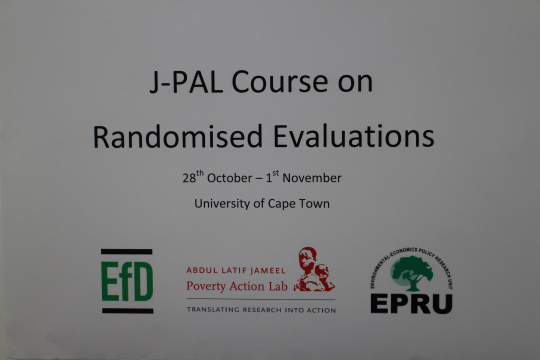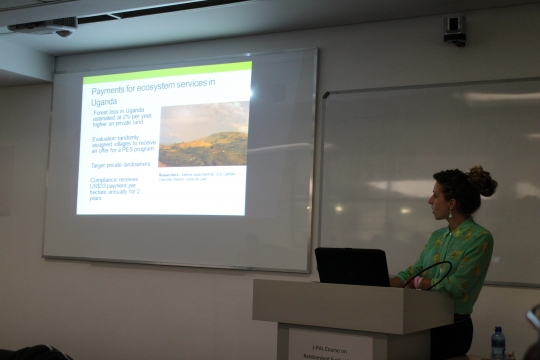About twenty EfD researchers from around the globe have been in Cape Town to grow two trees from one seed: they took part in a unique course on Randomized Controlled Trials (RCTs) from 28 October - 1 November 2013, right after participating the 7th EfD annual meeting.
A key component of EfD’s research is impact evaluation of environmental and development interventions to inform policy makers. Traditional methods of impact evaluation often suffer from challenges of identifying the real impact of interventions from other factors that might affect outcomes. RCT is a promising method that addresses this problem head on. By randomizing interventions to control and treatment groups, it is possible to test their true impact.
Designing and implementing RCTs is however a very delicate and complex endeavor that involves a deep understanding of not only the research problem at hand, but also a number of ethical and practical issues.
In light of this, EfD collaborated with the Abdul Latif Jameel Poverty Action Lab (J-PAL), a pioneer research network on RCTs, to organize this unique course and give EfD researchers hands-on experience with this important research tool.
Founded by leading development economists with the motto of ‘translating research into action’ and based at MIT, J-PAL has undertaken more than four hundred RCTs all the over world evaluating various interventions in health, education, agriculture and environment.
“The training not only equips EfD researchers with an excellent research tool, but also it creates opportunities for collaborative research across EfD centers”, said Martine Visser, an Associate Professor of Economics at the University of Cape Town and EfD Research Fellow.
With a combination of lectures, discussion of case studies and creation of an RCT design in groups, the five-day intensive course covers the A to Z of designing and implementing RCTs.

